Tag: hvac training
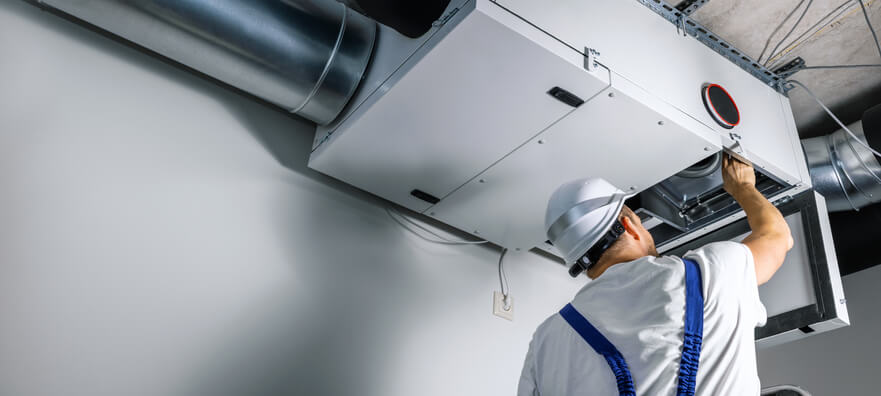
If you’re thinking about pursuing a career in the HVAC (Heating, Ventilation, and Air Conditioning) industry, you’re on track to enter a thriving field that offers a blend of hands-on work and technical problem-solving. But where do you start? How do you gain the necessary experience and exposure to decide if this is the right field for you? One often overlooked but highly beneficial position to consider is that of an HVAC Maintenance Assistant or HVAC Helper.
In this blog post, we’ll dive deep into what an HVAC Maintenance Assistant does, the benefits of starting in this position, and why it could be the ideal first step for aspiring HVAC professionals after your HVAC training.
What Is an HVAC Maintenance Assistant?
An HVAC Maintenance Assistant, often referred to as an HVAC Helper, is an entry-level position in the HVAC industry. As the name suggests, the primary role of this position is to assist HVAC technicians in their daily tasks. This can involve anything from handling tools, preparing work areas, and performing basic maintenance, to assisting with installations and repairs.
HVAC helpers focus on heating, cooling, and ventilation systems, assisting with tasks like inspecting equipment, installing humidifiers, preparing tools, cleaning air ducts, and maintaining company vehicles. They also handle the general upkeep of property interiors and exteriors. They ensure preventative maintenance is followed and assist with basic repairs across HVAC/R, plumbing, and electrical systems. Their duties also cover equipment repair, basic carpentry, furniture moving, and area maintenance like cleaning and lawn care. With the rise of clean energy systems, both roles need familiarity with electricity-based HVAC/R mechanics, such as heat pumps.
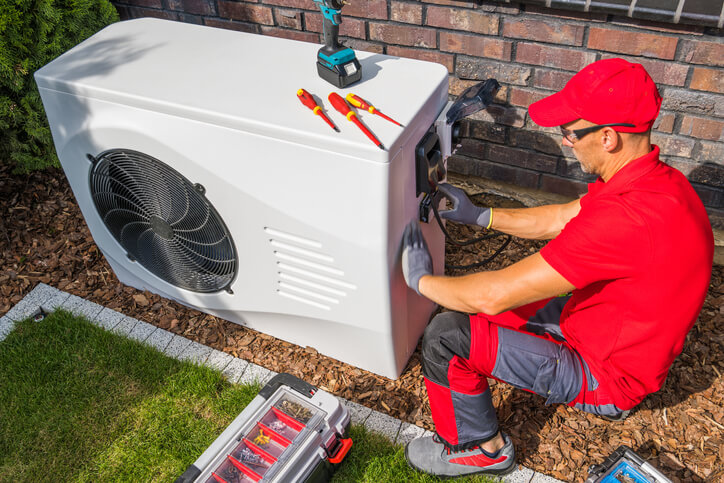
Why Consider Starting As An HVAC Maintenance Assistant?
Before committing to formal HVAC technician training or certifications, becoming an HVAC Helper offers a taste of the industry, granting invaluable first-hand experience of daily operations. This can be instrumental in gauging if the profession aligns with your aspirations. (this is generally not allowed. Most situations in hvac require a helper/assistant to already have the G3 certification)
Another notable advantage of beginning as an assistant is the “learn while you earn” model, a contrast to professions demanding early educational investments. This position also brings the opportunity for mentorship; by working alongside seasoned HVAC technicians, you gain access to a reservoir of knowledge and insights not always encapsulated in official training. Moreover, starting as an HVAC Helper is merely a foundation; with accrued experience and further training, there’s potential to ascend to more advanced roles, ranging from technician to management positions.

How to Become An HVAC Maintenance Assistant
HVAC helpers and maintenance assistants typically possess a high school diploma or GED, although formal education might not be a requirement for some. Previous experience is not usually mandatory, as workers often undergo a few weeks of on-the-job training to develop proficiency in their respective tasks.
(again this can be a bit misleading as a certificate is usually required to work on hvac systems and appliances.)
However, having vocational training in a relevant trade, understanding HVAC operations (particularly in energy-efficient technologies like heat pumps), or holding one to two years experience can give job seekers an edge, making them more appealing to employers compared to candidates without such qualifications.
Those aspiring to advance from these entry-level roles to become technicians or installers may consider applying for apprenticeship programs, pursuing vocational training, obtaining an HVAC technician diploma, or enrolling in courses provided by HVAC/R industry bodies, manufacturers, or distributors, with a focus on equipment and components used in clean energy systems.
Are you looking for a world-class HVAC technician college?
Contact NATS for more information.
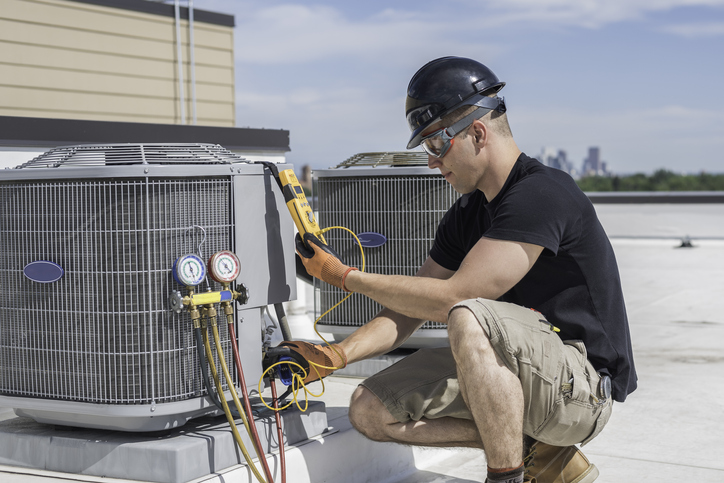
If you value doing a variety of work and are good with hands-on tasks, then chances are that a career in heating, ventilation, and air conditioning (HVAC) could be a great fit for you. HVAC technicians are quick problem-solvers, possessing a solid understanding of mechanical systems and how best to install and repair them. They are relied on whenever the heating dies off or the air conditioner breaks down—and practically every modern building uses either, if not all, of these systems.
Becoming an HVAC technician has many benefits, including the rewarding feeling of a job well done. Here are some reasons why becoming an HVAC technician might be a good idea for you!
Technicians Benefit of Short Training and Fast Results
Starting your HVAC training is key for your success as an HVAC professional. And, unlike lengthy university programs that can take four years to complete, pre-apprenticeship training can be completed in significantly less time.
Pre-apprenticeship training also includes plenty of hands-on work, rather than just sitting through long class lectures. As Jason Boyer, HVAC student at NATS, puts it, “I chose North American Trade Schools because it’s a hands-on school.” He adds, “They have the experience, they have the know-how, and you take what you can from them and apply it to your trade.”
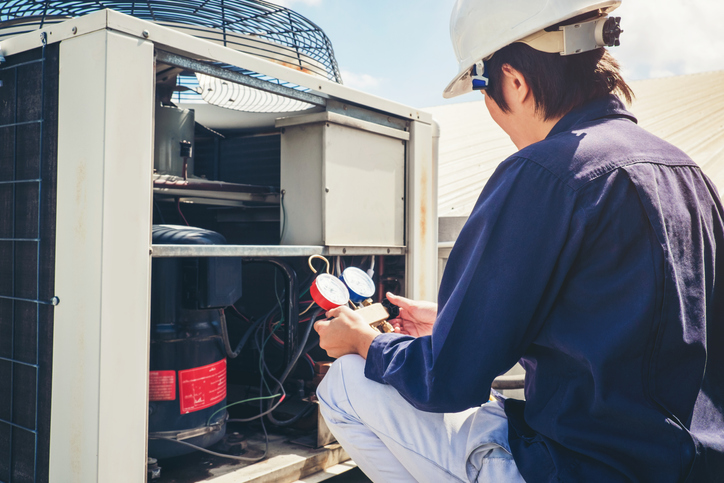
HVAC Careers Include a Variety of Work and Opportunities to Advance
Every day on the job offers the chance to do something new—working in both indoor and outdoor settings while meeting all kinds of different people. This means you’ll have plenty of opportunities to stay active on the job. Each task will contain different challenges for you to overcome, turning every service call into an opportunity for a change of pace. It’s anything but your typical 9-5 office job!
HVAC is a diverse field, offering a variety of work for its professionals. Technicians work with a variety of heating and air conditioning systems, having been trained to install and maintain gas and propane heating systems and ventilation as well as air cooling equipment in residential and light commercial environments. As a result, technicians have room to advance their careers after years of training and earning specialized certifications.
HVAC Is a Highly Valued Service That Comes with Many Rewards
Contrary to what some might think, HVAC work is not seasonal—no matter the time of year, people often need help with their HVAC systems. Due to the nature of the work, technicians need a solid level of mechanical skill and technical ability. HVAC technicians are effective problem-solvers. They have to analyze entire HVAC systems to root out key causes of failure before knowing how to make the necessary repairs. Because the work they do is hands-on, they also get the satisfaction of seeing the concrete results of their actions after a job well done.

An HVAC career is service-oriented, leaving plenty of room for customer satisfaction. Technicians are often met with gratitude as they work to provide valuable service, keeping temperatures well-regulated in all kinds of environments—ultimately providing comfort and security for their clients.
Are you interested in attending an HVAC college?
Contact NATS for more information!
 For future HVAC technicians just completing their training, there are many exciting career opportunities available. Graduates can look for jobs as HVAC Installers, Technicians, Maintenance Assistants, or Maintenance Technicians. In Ontario, job opportunities in HVAC are good. Part of the reason for this is that population growth is driving the need for more buildings, especially in certain urban areas.
For future HVAC technicians just completing their training, there are many exciting career opportunities available. Graduates can look for jobs as HVAC Installers, Technicians, Maintenance Assistants, or Maintenance Technicians. In Ontario, job opportunities in HVAC are good. Part of the reason for this is that population growth is driving the need for more buildings, especially in certain urban areas.
When interviewing for your first job in HVAC, it’s important to know what employers are looking for and how to present yourself in order to ensure you’re putting your best foot forward. Read on for a few tips on how to ace your interview and land the job.
Know How to Highlight Your HVAC Training in the Interview
When interviewing for an HVAC career, it’s important to research the company you’re applying to, so that you know a bit more about what they could be expecting from you. Try to determine the types of services they provide (whether they’re primarily residential or commercial), what kinds of locations they cater to, and what kinds of equipment they typically utilize. This kind of information will help you to highlight the skills you have that will be most impressive to the employer.
Graduates of hands-on training programs like the North American Trade Schools’ HVAC technician training program can reference the marketable skills they know will impress their potential employer simply by doing a bit of research on the company they’re applying for.

Become Familiar with Possible Questions You Might Be Asked
While you might not be able to anticipate every question, it’s good to come prepared with a few possible interview questions. You’ll probably be asked simple but important questions like what motivates you, what about their company interests you, and other questions which allow them to get to know you as a person. They also might ask you some questions more relevant to the HVAC industry, such as inquiring why you’re interested in HVAC, what your driving record is like, and more. Prepare answers that show you’re ready for an HVAC career and have excelled in your HVAC training.
Prepare Questions to Ask Your Potential Employer
It’s also good to have in mind a list of questions that you would like to ask during the interview. These questions should be about the company specifically, demonstrating that you’ve taken the time to get to know them and showing them that you’re interested. Your questions could be about the company’s expectations for you as an employee, what a typical day on the job might look like, what about the company is especially unique, or any other company-related questions you might have.
A “Thank You” Never Hurts
Lastly, remember to thank the interviewer after you’ve finished, in addition to sending a follow-up thank you email. Make sure they know you’re interested in the job!
Think you have what it takes to become an HVAC technician?
Check out the North American Trade Schools program options today.
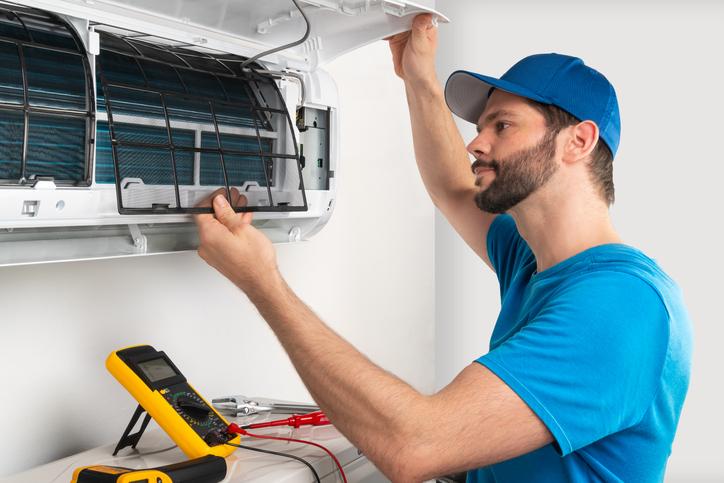
It’s not just the quality of an HVAC unit that counts, but how it’s installed. As an HVAC technician, your responsibility is to install these systems and detect any issues that can arise within their many different components and figure out how to correct them. However, there are several mistakes you can find yourself making if you aren’t careful with the installation process.
Since learning how to maintain and install HVAC systems are a significant component of your job, it’s just as important to know what not to do as it is to learn best installation practices. Here are some of the more common mistakes you may find yourself making after your HVAC training.
Ductwork is One of the Most Important Factors to Watch After HVAC School
It’s important to be sure you choose the correctly-sized duct for the HVAC unit you’re installing, and use high-quality materials in the process (e.g. using a heavy-duty sealant instead of tape, and adding R-6 insulation wrap).
If you don’t, it can create issues with both air flow and leaking, and potentially result in gaps, dust, loud noises, or an overheating furnace. As a result, the unit itself won’t function properly, and those living in the home will likely see their energy bills rise. Not only that, but up to 30% of the HVAC unit’s overall output can be compromised when not properly insulated.
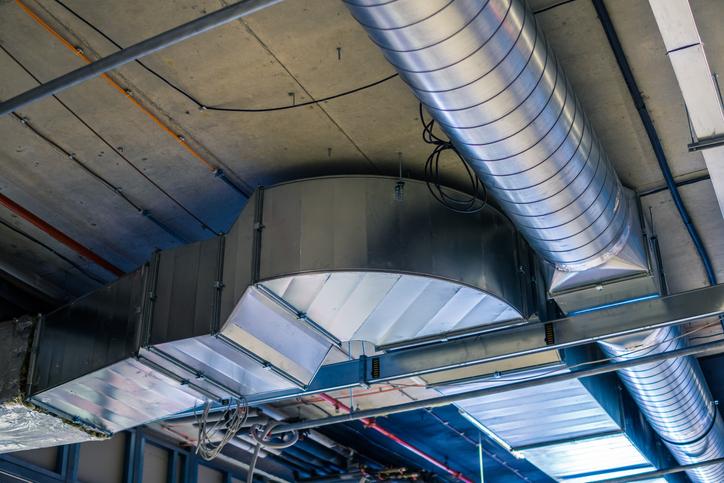
When it Comes to the Furnace, Size is Everything
By “size is also everything”, we don’t mean they need to be as big as you can possibly get them. Rather, the important thing to consider after finishing your HVAC training is to find a furnace that is sized proportionately to the one previously in place, and is also a newer model.
This not only helps with the flow of air in the home, but with the system’s efficiency as a whole. Should you not pick a correctly sized furnace, problems could occur. This includes the unit overworking itself to provide better cooling or heat if too small, or uneven temperatures if too big. However, be sure to double-check that the size calculations are correct, even if it’s technically the same size as the previous furnace.
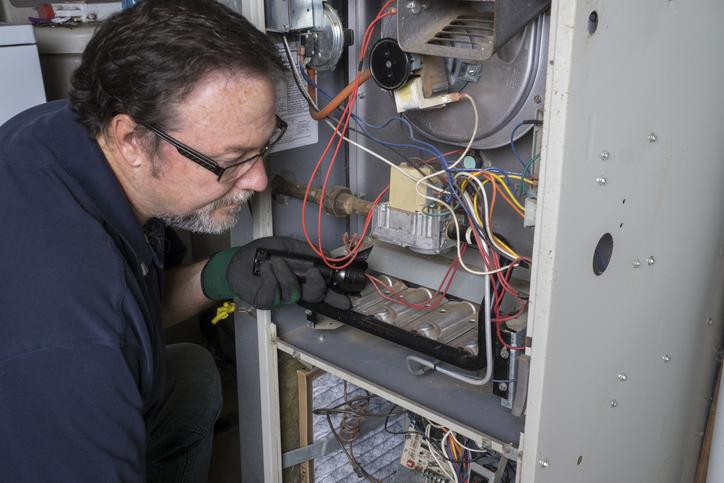
Make Sure Air is Properly Distributed at All Times
This is one of the most crucial parts of a successful HVAC installation, as it can otherwise lead to uneven cooling or heating. HVAC school students should be aware that proper air distribution design is a must, and that the ductwork is symmetrical in size to the unit’s output capacity.
To achieve this, apply new ductwork rather than the preexisting one, and be sure it’s distributing air evenly. Another of the more important aspects to keep in mind is proper ventilation. You’ll need to ensure the HVAC unit you’ve installed has a strong balance of both hot and cold air, and that the air is balanced and flows cleanly throughout the home.
Want to start your HVAC technician training?
Contact North American Trade Schools today!

Fuel gases help fuel heating systems, provide energy for transportation, and are used for welding—but what are they, really? Fuel gases are gases that, when mixed with oxygen or air, become combustible. They can apply to several different processes, and can be used for a number of different industrial applications. Since it’s very important for students training to become an HVAC technician to know how to practice the safest possible gas-handling procedures, learning the basics about fuel gases is a good idea.
While there’s a lot to learn about fuel gases, it’s worth knowing some of the basics beforehand, so that students have a solid idea of how fuel gases apply to heating. Here’s what students in HVAC training should know.
HVAC School Students Should Familiarize Themselves With the Different Types Used
One of the most important things to remember about fuel gases is that there are a number of different types that can be used. Some of the most commonly used are hydrogen, carbon monoxide, and ethylene. However, we’ll be focusing specifically on acetylene, methane, propane, and propylene. These four in particular are worth remembering for those in HVAC training, because each of them are comprised of hydrocarbons, either partially or in full.
Acetylene is considered the most efficient and productive fuel gas, producing the hottest and most concentrated flame. It can also be used for both welding and cutting, the only kind of commercial fuel gas that can do so. Methane is what natural gas is primarily made of, and is most often used for heating. Its combustion properties can also vary, and can be used for cutting purposes in some cases.
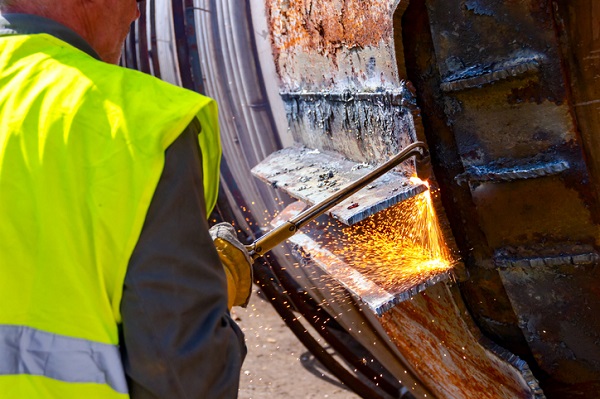
Propane has a lower flame temperature than acetylene when mixed with oxygen, and has the lowest flammability range among the most common fuel gases, but can be used for various purposes such as heating, brazing, melting and drying. Lastly, propylene’s double bond means it burns hotter and has a higher flame temperature than propane, and is often used during situations that call for a higher process performance.
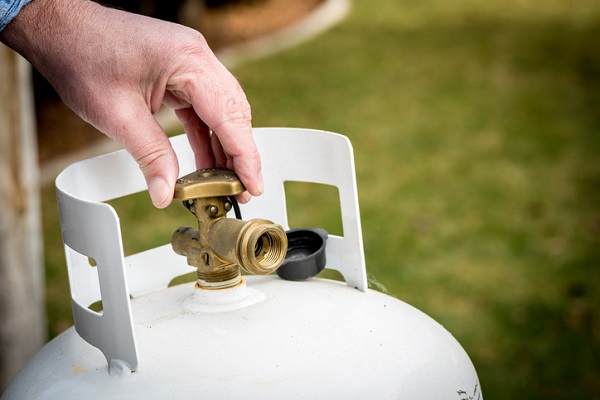
Different Fuel Gases Have Different Heating Values and Other Properties Between Them
Since a big part of HVAC school involves learning about fuel gases and their respective characteristics and properties, it’s worth familiarizing yourself with the different heat values between each type of fuel gas. For example, acetylene has a gross heating value of 1,498 btu/ft3 and 21,569 btu/lb (British thermal units per cubic feet and pounds). Meanwhile, propane has a gross heating value of 2,572 btu/ft3 and 21,564 btu/lb, and propylene has 2,336 btu/ft3 and 21,042 btu/lb. Therefore, acetylene needs much less than propane or propylene to produce the necessary heat.
It’s also worth remembering that fuel gases each have different carbon to hydrogen atom ratios. This means that the efficient burning of the gas will require various amounts of oxygen to be used depending on the fuel gas type. Furthermore, some fuel gases are natural, while others are manufactured. Natural fuel gas largely consists of methane, while gases like ethane, propane and butane are considered natural gases. Natural gas is also considered the most commonly used fuel gas type today. Meanwhile, manufactured types of fuel gases include hydrogen, acetylene, biogas, coal gas, and blast furnace gas among others.
Want to start your HVAC technician training?
Contact North American Trade Schools for more information!

HVAC technicians are required to have a complex skill set to address different tasks. Every day might provide different challenges, from identifying maintenance risks to diagnosing electrical and mechanical faults to cleaning a system or doing warranty service. Whether you work in a commercial or residential setting, customer service skills also play a big role in your success.
Skilled trades people trained in HVAC are in demand and many employers stress the importance of customer service skills. While it helps if you already have some experience with customers, these so-called soft skills can be learned. With practice and guidance, you will quickly see the variety of reasons these skills are important. Here are a few ideas to get you started.
Short Term Comfort Guarantees Long Term Comfort
If you work in a residential setting you know, of course, that you’re working in someone’s house. Ultimately, you are contributing to their overall comfort of their home. Installing or maintaining an air-conditioner when it’s hot or making sure a furnace runs all winter is the main job in making people feel comfortable. However, the customer’s comfort while you’re actually in their home is just as important.

An experienced technician who has already had a long HVAC career will say that being friendly and communicative means that they get called back. A customer that feels at ease while you work is also more likely to recommend you to others, which will only help you in the long run.
Customer Trust Adds Value to HVAC Training
There are a number of ways in which you can build trust with a customer after your HVAC training. For example, it can be helpful to explain the work you are doing, give updates, and leave room for customers to ask questions. These types of exchanges add value to your work because a customer will have a better understanding of your job and see that you know what you’re talking about.
When you break down what you do in everyday language and recommend preventative maintenance it also demonstrates to a customer that your goal is to have a system that will not need extra, costly repairs. Of course, if their system does need more attention in the future, they will have confidence that your return will be worth it.
Sensitivity Gives Everyone Options
While there is a lot of joy involved in installing, repairing and maintaining the systems that people rely on every day, you sometimes have to deliver bad news. When you go out on a call because a furnace doesn’t seem to be working or the AC has stopped, your job may be to tell people they must do an expensive repair or replacement. The way a technician delivers this news must be sensitive to the situation and show understanding.

Again, communication skills come into play. Whatever the situation might be, it is important that you be able to explain a customer’s options clearly. Sensitivity to different levels of technical understanding as well as sensitivity to financial impact will keep you and your HVAC business as an option for more customers in the future.
Want to start your career?
North American Trade School has the courses for your HVAC diploma!





